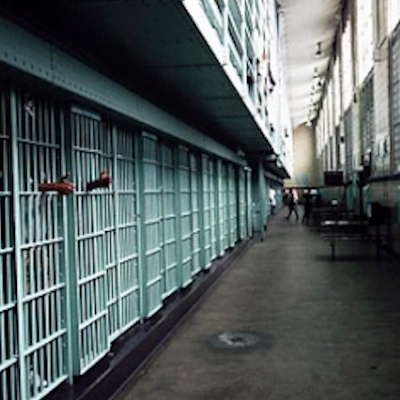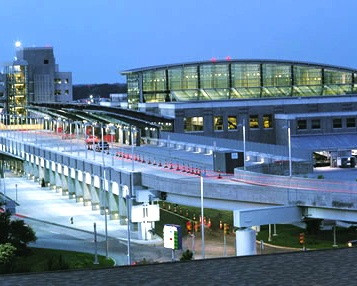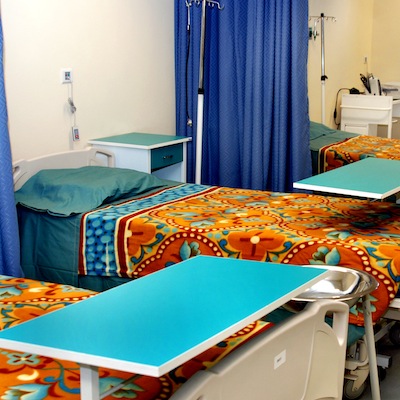RI’s Failed Revenue Numbers Could Change the Governor’s Race for Raimondo
Friday, May 12, 2017
The long anticipated state revenue numbers may have flipped the proverbial political table in Rhode Island. The $100 million shortfall announced this week undermines Governor Gina Raimondo’s claims as a strong manager who is restoring the Rhode Island economy.
Love her or hate her, the perception in 2014 was that Raimondo was competent, but the tourism gaffe, UHIP and DMV technology failures, coupled with the budget management issues, raise serious questions.
The budget shortfall is a major blow to Raimondo’s legislative agenda, and the economy’s underperformance sparked an immediate response from former Governor Lincoln Chafee.
GET THE LATEST BREAKING NEWS HERE -- SIGN UP FOR GOLOCAL FREE DAILY EBLASTChafee Touts Track Record
Chafee not only questioned Raimondo’s management, he pointed to his own numbers. Chafee told GoLocal on Thursday that Raimondo was “clueless” in her management of the budget.
“The shock is that revenues are running $60.1 million behind expectations for the current budget year," said Chafee. "Here are the surpluses from my years:
FY 2011 $64.2M
FY 2012 $115.2M
FY 2013 $104.1M
FY 2014 $68.0M
"We ran a tight fiscal ship!" added Chafee.
Did Raimondo’s Legislative Agenda Just Evaporate?
For the past few months, Raimondo has been a whirling dervish, pitching the benefits of her college funding proposal.
She has engaged a spinoff group of the Democratic Governor’s Association, which has spent hundreds of thousands of dollars to promote her plan, and asked technology leaders in the state to take up the mantle to talk about the need for a job-ready, well-educated work force.
However, Raimondo’s proposed funding program received a lukewarm reception from legislative leaders including Speaker Nick Mattiello and House Majority Leader Joe Shekarchi.
On Wednesday night, after the new revenue number were reported, Mattiello issued a very tough statement pointed directly at the Raimondo administration:
“I can understand that certain economic projections have been revised to reflect lower growth, but it is frustrating to me that a lot of the budget problems are due to not achieving budget savings or revenue initiatives the Administration proposed last year. State government must be managed better so that it works more cost effectively for the taxpayers. My budget priorities have not changed. We will continue our diligence and make sure we cover this gap. We will look at everything.”
Other projects under the Raimondo Administration now in jeopardy include a funding scheme for a new PawSox stadium — she said on GoLocal LIVE on Monday that she expected a rollout plan short
In addition, the vacant Superman building which has been seeking state subsidies to fund its redevelopment is also a much harder sell. Do Rhode Island legislators want to provide state dollars to another Boston developer? Massachusetts-based High Rock Development and owner David Sweetser have been seeking state, city and federal dollars to rehab the building for the past five years.
Will Financial Management Issues Embolden Chafee to Primary Raimondo
Chafee has been speaking out more and more about Raimondo’s economic strategies, her “poor” track record as Treasurer, and now her overall financial management.
In February, Chafee took Raimondo’s administration to task for promoting economic growth by funneling tax dollars to some of America’s richest corporations.
Appearing on GoLocal LIVE with GoLocal News Editor Kate Nagle, Chafee said that Raimondo’s transfer of taxpayer dollars to billion-dollar companies such as General Electric and Johnson & Johnson was flawed.
“I have never liked corporate welfare. It's unfair to existing businesses…some out-of-state business comes in and you give them the candy store. I just don’t like it," said Chafee.
Chafee Questions Raimondo's Wexford Deal
On May 1, Chafee, in a letter sent to members of the Board of the Commerce Corporation, warned about the failed strategies of funneling millions of incentives to Wexford on the 195 land. Chafee pointed to a New York Times editorial that warns that such subsidy programs are "foolhardy."
Moreover, Chafee said that the money going to corporate subsidies could be better used for improving roads, funding college education and lowering the car tax.
Now, Thursday’s attack on Raimondo by Chafee only increased.
Chafee told GoLocal, "Why did Governor Raimondo waste the Democratic Governors Association valuable money on TV ads for the free tuition proposal with this looming iceberg about to sink the budget? The Governor was clueless on the magnitude of the UHIP problems and unbelievably clueless about what was happening to the revenue and expenditure columns in her administration.”
Related Slideshow: Winners and Losers in Raimondo’s FY18 Budget Proposal
Related Articles
- Chafee Steps Up Criticism of Raimondo’s Economic Development Policies
- ABC6’s “In The Arena” - Shekarchi Says May Not Be Enough Money to Fund Raimondo College Plan
- Governor Raimondo’s Multiple and Growing Technology Failures
- Former Cranston Mayor Blasts Fung, Raimondo and City of Providence
- Riley: Did Magaziner & Raimondo Invest in Vulture Hedge Funds?
- Siedle: Trailing Wreckage, Gina Raimondo Rising Star of Democratic Party?
- Chafee: Raimondo “Clueless” to Magnitude of Revenue Shortfall
- Robert Whitcomb: Raimondo Status, Medical Cost-Shifting to the States; & Saving the Citgo Sign
- Igliozzi Makes Appeal to Raimondo to Keep Plainfield Street 6/10 On-Ramp
- Democratic Governor’s Political Arm Launches TV Spot for Raimondo 20 Months Before Election
- EDITORIAL: Raimondo’s College Plan, Fix the Foundation Before Building on the Addition
- Raimondo Names Steinmetz Policy Advisor on Cybersecurity
- Magaziner Announces RI has Withdrawn $340 Million From Hedge Funds, Strategy Shift from Raimondo
- Raimondo Names Rebecca Boss as Her Choice for Director of BHDDH
- My Position on Marijuana Legalization Has Evolved, Says Raimondo on GoLocal LIVE
- RI’s Revenues Collapse: Raimondo Blames Trump, Mattiello Blames Raimondo: UPDATED
- Robert Whitcomb: Raimondo’s No-Bid Contract, Gov. Baker’s MBTA, and Spring
- Seven Reasons Why This Was Raimondo’s Most Complicated Week
- Riley: Politics and Pensions - Has Raimondo Given Up?
- Governor Gina Raimondo is Adopting
- Education Labor Leader Bob Walsh Talks About the Future Under Trump and Raimondo
- Arlene Violet on 38 Studios, Mob Informants, Governor Raimondo, and More
- Is Raimondo’s College Plan Dead? Paiva Weed’s Departure, Trump and CPAs’ Opposition
- RIC’s Endress Talks Trump’s Tweets, Raimondo’s National Press Disconnect with RI, and More























